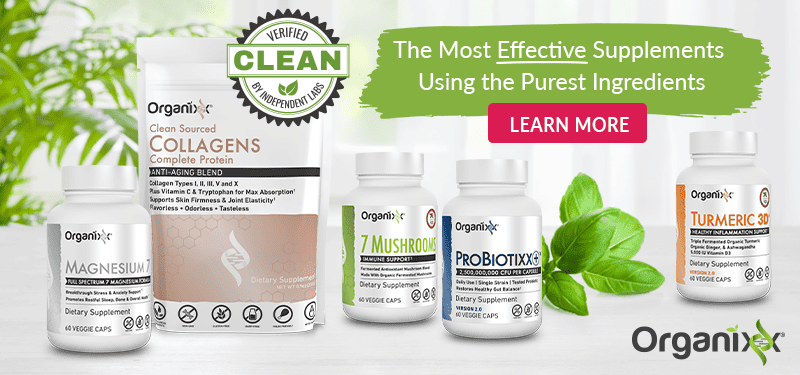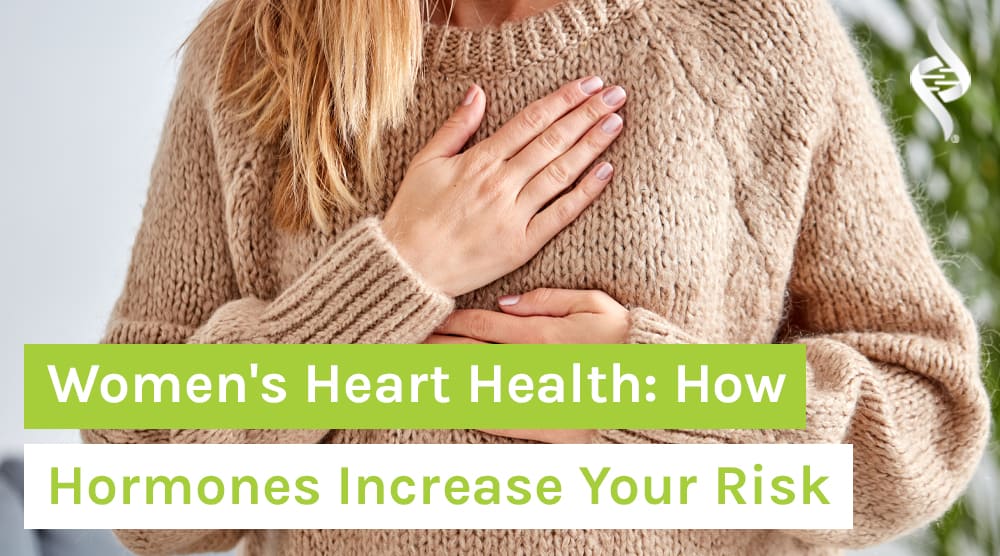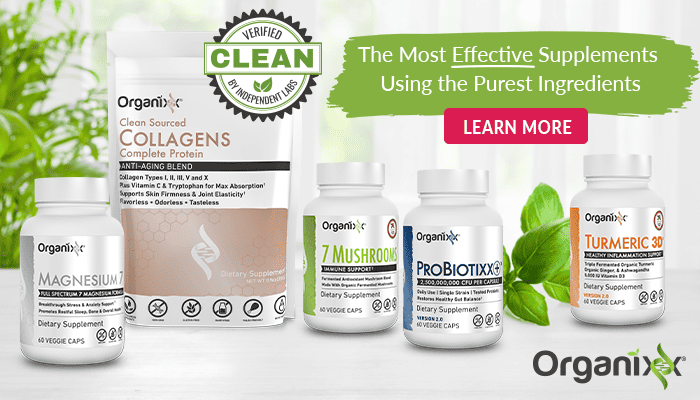Women’s Heart Health: How Hormones Increase Your Risk
Video Transcript:
Today, I want to talk to you about women’s heart health and the influence of our hormones in keeping us heart-healthy. And this is really impactful for women, particularly, who are going through hormonal imbalances. Whether they are teens and young adults or women in their mid-life age, maybe dealing with perimenopause and menopause and post-menopause, there is a direct influence and link between the balance of your hormones and the state of your cardiovascular health.
This is really complex, and to be honest with you, as a functional medicine provider, the majority of my patients are not tuned in or clued into this deep connection because our medical community doesn’t always educate, and we don’t always hear the need to test hormones, specifically if you have a family history of cardiovascular disease, or heart disease, or any type of risk of heart attacks and strokes.
So today, I want to share with you some important pieces to consider, especially when it comes to your potential risk for blood clots and your risk of heart attack, or stroke, or progression of heart disease, because your estrogen balance and your progesterone balance directly influence the state of your vascular function.
The Role of Estrogen in Women’s Heart Health
Particularly, I’m going to talk about estrogen right now. Estrogen modulates vascular function [1], and it also influences your inflammatory response. And it has a direct influence on both your metabolic process and insulin receptivity. So, if you are aware that you have insulin sensitivity or glucose intolerance, estrogen will be an underlying influence in that resistance or intolerance – your sensitivity.
Now, why is this important? Well, if you have an imbalance, either too high or too low levels of estrogen, then that directly impacts the modulation of your cardiovascular system. We know that estrogen, when it’s imbalanced, individuals will experience elevations of LDL and a reduction in HDL. We also can notate certain triglycerides being imbalanced, and even patients being diagnosed with fatty livers, and it’s a non-alcoholic fatty liver disease. Insulin sensitivity is directly linked to that, and that overwhelm and influence can cause inflammation in the cardiovascular channel and kick-off metabolic syndrome, which is an underlying factor to causing or elevating your risk behind stroke and heart disease.
So, estrogen becomes really important for us to look at evaluating. There’s also a direct correlation to when we, as women, naturally go through hormonal changes where our estrogen output and our estrogen production decreases. That tendency where we have elevations in LDL and reductions in HDL increase.
And so, you will notice that if you’ve gone through menopause, that your normal labs, your everyday lifestyle has not changed. The only thing that’s changed are your estrogen output levels and the receptivity of estrogen in your body. And you’re also notating labs elevating LDL, and you’re starting to have your doctor talk to you about taking statins. Well, simply balancing estrogen and supporting your liver’s metabolic function of metabolizing estrogen can help you reduce your risk of heart disease and stroke, and ultimately help balance out your hormones.
Progesterone’s Influence on Heart Health – The Missing Link?
Now, on the flip side, progesterone also has a massive influence. And in my opinion, as a naturopathic doctor, I feel like progesterone is the missing link for a lot of women in terms of the connection between hormone imbalance and heart disease. And if you’re looking at reversing, limiting, or lowering your risk, it’s really important you fine-tune your progesterone levels.
Why is this important? Well, progesterone naturally is a vasorelaxant [2]. It helps to minimize the kind of stress of our vascular system. It’s a calming agent, it’s a calming hormone, and it also helps minimize what we call hyperactivity of your vascular structures. So for instance, hyperactivity might register as high blood pressure, elevated heart rate, stress of the vascular channel, so cardiovascular stress. When we have optimal progesterone levels, we will naturally have a relaxing of our cardiovascular structure and that becomes a cardiovascular protectant.
Learn More from Dr. Melissa in Masterclasses
So, progesterone is really important. And those two together – estrogen and progesterone – it’s important to keep the ratios fine-tuned. I talk a lot about this in an assortment of my masterclasses. I have hormone mastery masterclasses where we talk about how to specifically fine-tune the ratio – it’s a three-to-one ratio between estrogen and progesterone and why that’s really important, especially when we’re in perimenopause or going through menopause.
And I also talk a lot about hormone influences for men and women in my cardiovascular masterclass. So, I have a whole heart-health-focused masterclass where you can really learn more about not just these hormones, but there are also an assortment of hormones that are very much regulatory influences and certain hormones signaling and receptivity that will greatly influence the mechanisms of your cardiovascular health.
A Direct Link Between Hormone Imbalances and Heart Health
So, I want you just to know if you are watching right now, and you know for sure, because you’ve had labs and you’re also represented in hormonal imbalance symptoms, if you have hormone imbalance, there is a direct link to your cardiovascular health. And so, it’s really important that you take steps to balance out your estrogen and balance out, particularly, most of us have to level up our progesterone.
So, I hope this was helpful. Do you know the way the body works? We are symbiotic. The influences of hormones will affect an assortment of body systems and mechanisms within the body. And so, modulation and the mediation of hormones directly has, in some cases, a negative influence on your heart health. And when we’re balanced, it has a positive influence.
So, that’s my huge female health tip today, specifically helping you really, really balance and lower your risk factors for heart disease, because it is the number-one killer of women. And most of the time, we are not educated, nor are we studied in a lot of clinical research about heart health. But what we do know is there are great influences our estrogen and progesterone place on our heart health. So fine-tuning that is going to be absolutely critical for you achieving optimal cardiovascular health.
Organixx is your one-stop-shop for the most up-to-date health tips… all-natural remedies… and organic solutions for all your health needs. See our full product line here.






This is helpful information. What type of tests do recommend to get an accurate reading of hormone levels?
I’m 63 years old, post menopausal (10+ years) and have never taken any hormones. Is it safe to start taking estrogen and progesterone now? I’ve heard conflicting info on this. Thank you.
Hi Margot, We all have different needs and tolerance levels. As you know, when it comes to health it is never a one size fits all situation. There are many variables that go in to the determination of what is right for each person. If you’d like to get Dr Melissa’s expert advice on your personal situation, then Dr. Melissa has kindly offered the Organixx community a discount for booking a session with her. To get 10% off a 60-minute session with Dr. Melissa, please use this link: https://organixx.com/dr-m-bio We wish you the very best on your continued health journey.
I wanted to ask if i anyone can take this plz??
Hi Elona, Generally speaking, most nutritional supplements can be taken by most people. However, we always suggest you speak with your trusted healthcare provider to find out if supplementation is right for you. We want you to be safe and healthy. Enjoy your day! :)